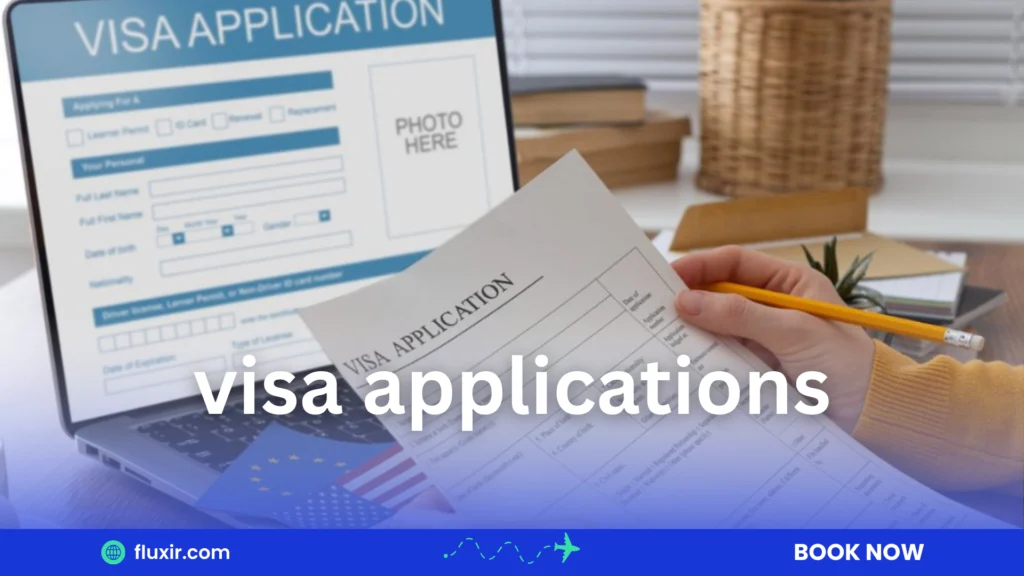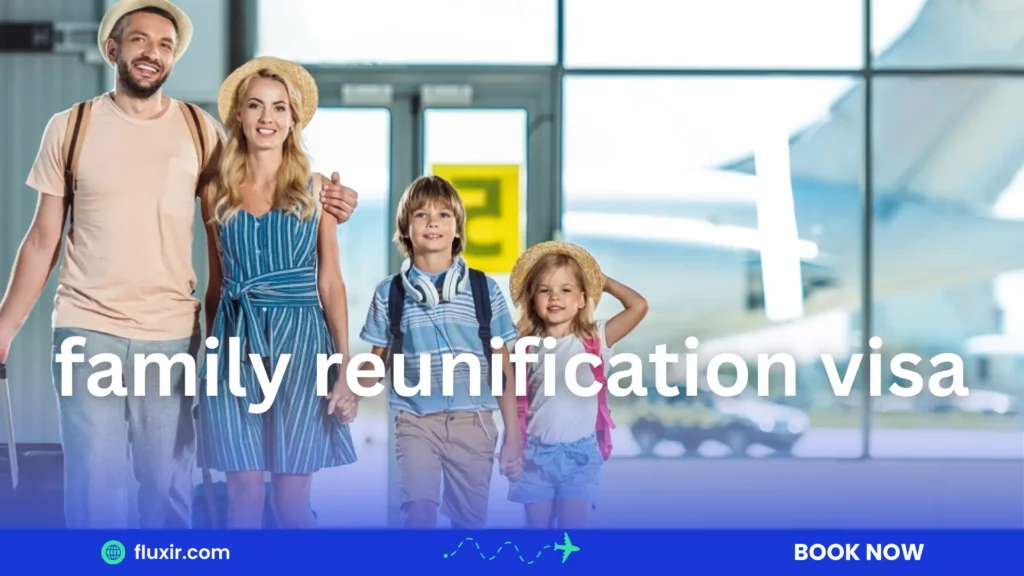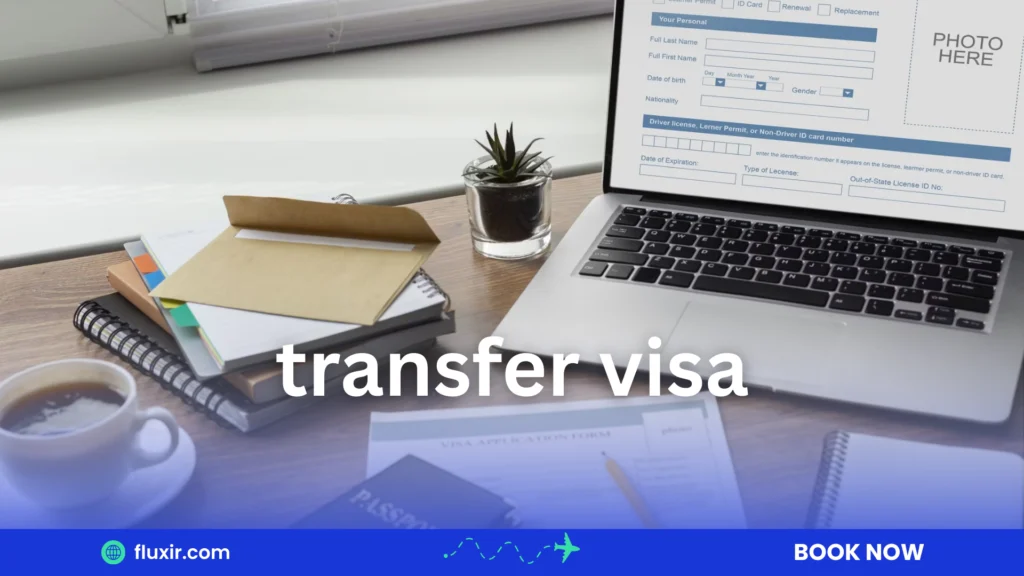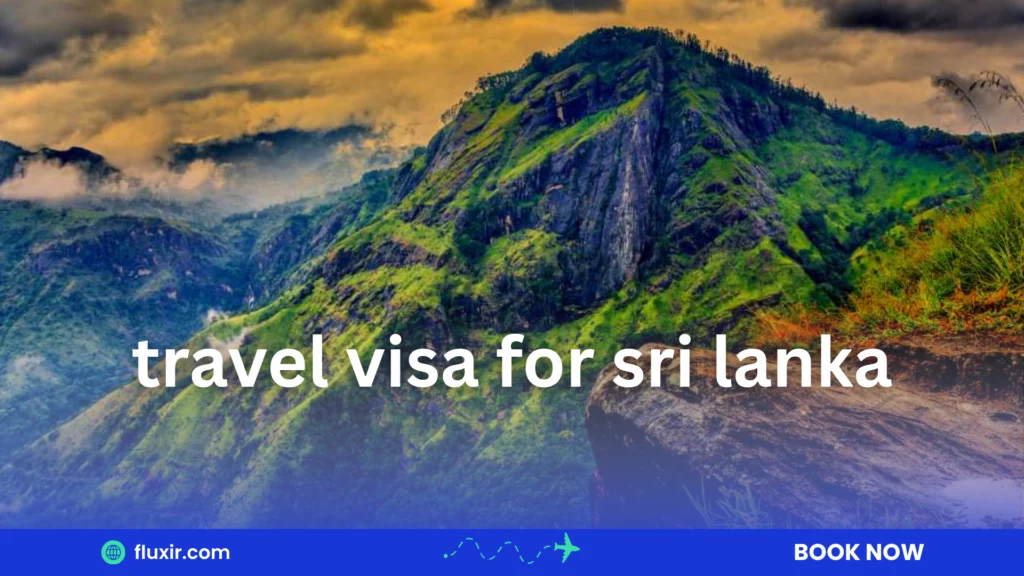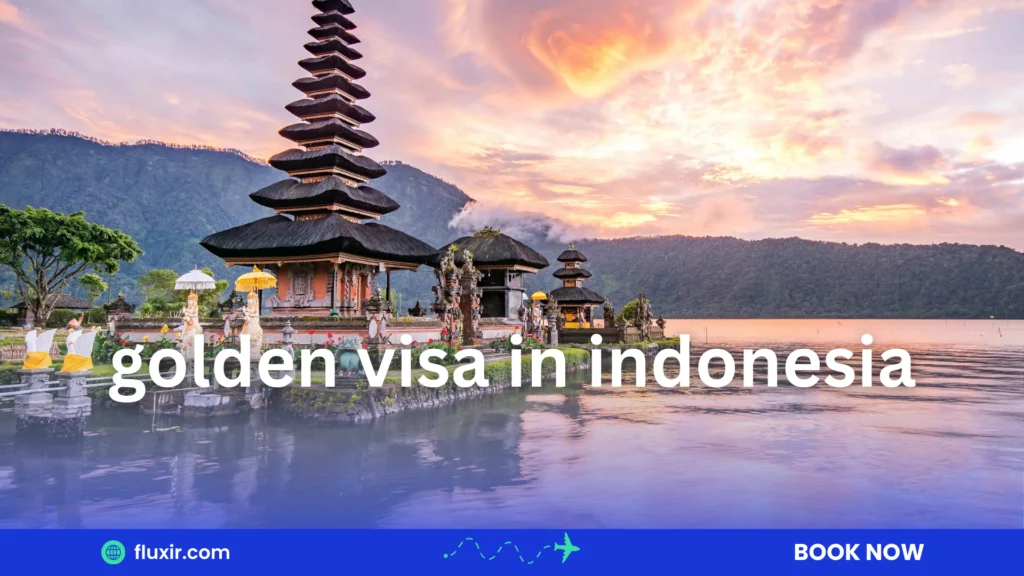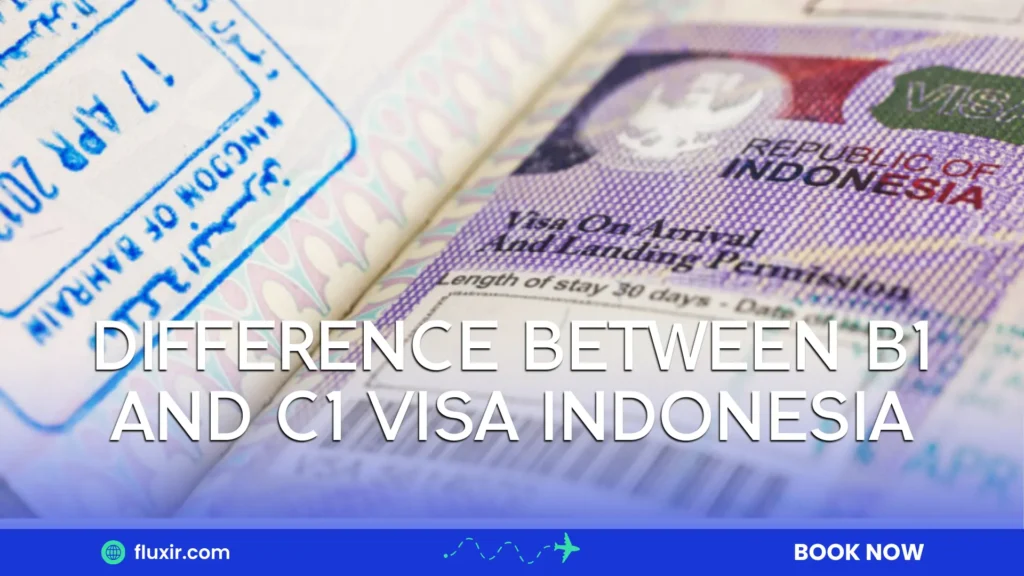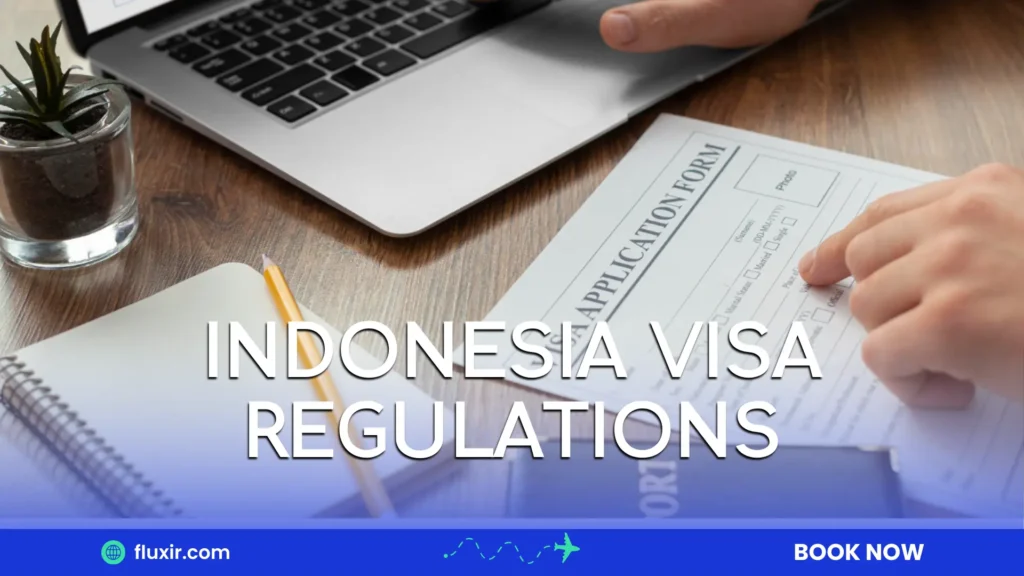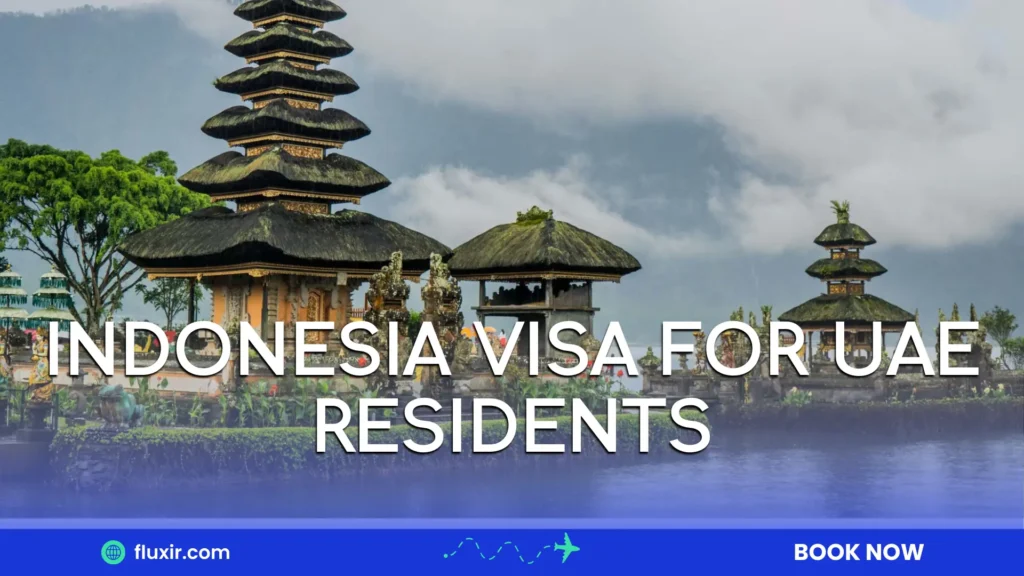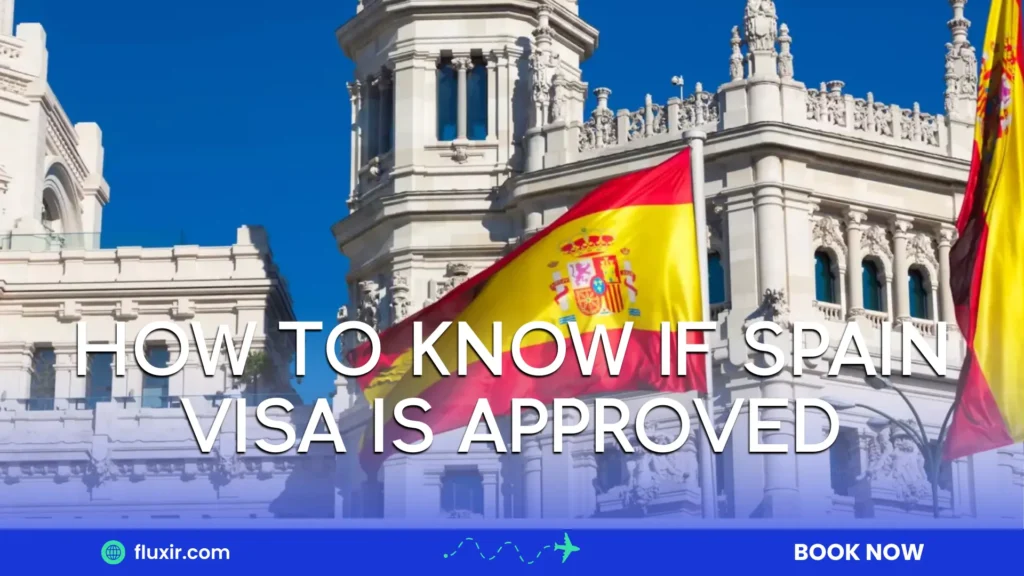Visa Applications in 2025: Step-by-Step Guide for Fast & Successful Approval
In 2025, traveling internationally is easier than ever, but only if your visa applications are done right. Whether you’re planning a vacation, studying abroad, attending a business event, or relocating for work, understanding how visa programs work is essential. Yet, thousands of travelers each year face delays or rejections simply because they missed a small detail or submitted incomplete documents. This guide will walk you through everything you need to know about visa applications in 2025, from choosing the right type of visa to avoiding the most common mistakes. With the support of platforms like Fluxir, applying for a visa can be faster, smoother, and much less stressful. Importance of understanding the visa applications process Understanding the visa application process is essential for a smooth and successful travel experience. Many travelers face delays or rejections simply because they overlook basic requirements, submit incomplete documents, or misunderstand visa rules. These mistakes can cost time, money, and even the opportunity to travel. Types of Visa Applications Different visa applications are designed for different purposes, and understanding which one fits your needs is the first step: Tourist Visa A tourist visa allows travelers to visit a country for leisure, sightseeing, or visiting friends and family. It’s usually short-term and doesn’t permit work. Business Visa A business visa is for professionals attending meetings, conferences, or short-term business activities abroad. It doesn’t allow employment but supports official commercial purposes. Student Visa Student visas are granted to individuals enrolled in academic or training programs abroad. They require proof of admission and financial support throughout the study period. Work Visa A work visa lets skilled individuals legally work in a foreign country. It often requires a job offer, employer sponsorship, and occupation-related qualifications. Digital Nomad Visa This visa is ideal for remote workers who want to live abroad while working online. It promotes location-independent professionals with steady online income. Transit Visa Transit visas are for short layovers in a country while en route to another destination. They’re limited in duration and don’t permit local travel. Each visa has unique requirements and application procedures. Choosing the right category from the start is essential for approval. General Visa Applications Requirements No matter which visa programs you’re applying for, some documents are almost always required: Valid Passport: Your passport should be valid for at least 6 months beyond your intended stay. Proof of Financial Means: Bank statements, pay slips, or sponsorship letters showing you can support yourself. Accommodation & Itinerary: Details of where you’ll stay and what you plan to do during your visit. Travel Insurance: Many visa programs require proof of insurance covering emergencies and medical expenses. Purpose of Travel: Invitation letters, acceptance letters from schools, or employment contracts, depending on your visa type. These documents should be clear, current, and well-organized to avoid unnecessary delays. How to Apply for a Visa: Step-by-Step Process Here’s a simple breakdown of how to apply under most visa visa applications programs in 2025: Research the Visa Type: Understand which visa program fits your travel purpose. Gather Required Documents: Start collecting the necessary paperwork early. Complete the Application Form: Fill out either an online or paper form based on your destination’s requirements. Book an Appointment or Submit Online: Some countries require embassy visits; others accept full online applications. Attend Interview (if needed): You may be asked questions about your trip or background. Be honest and confident. Wait for Approval: Processing times vary but generally range from a few days to a few weeks. Following this process carefully gives your application the best chance of fast and successful approval. Top Countries with Fast Visa Processing in 2025 Some countries have streamlined their visa programs to encourage smoother entry for travelers and professionals: UAE: Known for digital innovation, the UAE offers quick visa processing, especially under its Green Visa and business visa categories. Japan: Updated systems and online applications make Japanese visas faster to get than ever before. Schengen Area: With the new ETIAS system launching, many short-stay visa applications for Europe are becoming more automated. Turkey: Their eVisa platform allows tourists and business travelers to apply entirely online with fast results. Singapore: Efficient processing and digital submission make it one of Asia’s most travel-friendly countries. These countries are leading the way in 2025 for traveler-friendly visa programs. Common Mistakes in Visa Applications and How to Avoid Them Even with the best intentions, many travelers make simple mistakes during applying for visa applications that can ruin their chances. Here’s what to avoid: Mismatched Information: Your travel dates, name, and passport number should match exactly across all documents. Incomplete Paperwork: Missing one document, like insurance proof or financial statements, can delay or reject your application. Ignoring Travel History: Overstaying a visa in the past can affect future approvals. Be honest about your history and explain any concerns clearly. Using a platform like Fluxir helps prevent these errors through smart checklists and guidance. How Fluxir Helps You with Visa Applications At Fluxir, we understand that applying for visa programs can feel confusing and overwhelming. That’s why we’ve built tools that take the guesswork out of the process: Smart Eligibility Checker: Instantly find which visa programs you’re eligible for based on your profile. Document Checklist Tool: Get a personalized checklist to stay on track with required paperwork. Application Support: Whether you’re applying online or through an embassy, we guide you every step of the way. Our goal is to make your visa journey faster, simpler, and more successful. Thousands of travelers trust Fluxir each year to handle their applications with confidence. Ready to Apply with Confidence? Explore Top Visa Programs Today with Fluxir Start your journey now with Fluxir’s easy-to-use visa services. Whether you’re traveling for work, study, or adventure, our tools help you choose the best visa programs and submit your application fast. Don’t let paperwork slow you down; get expert help and apply with confidence at Fluxir. Visa applications in 2025 are designed to be more accessible, but only if you understand the steps and

